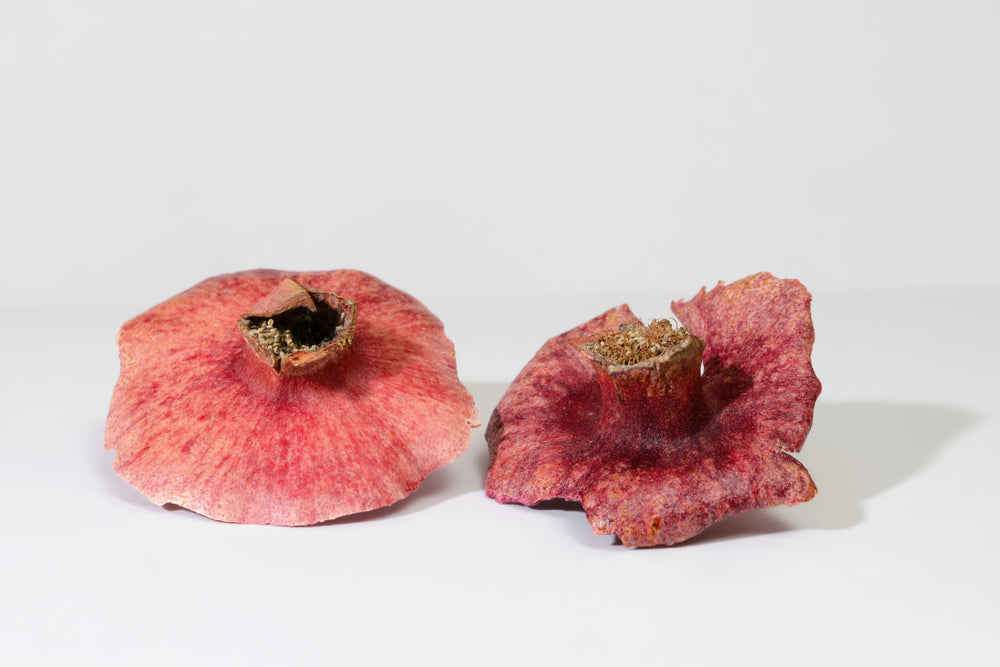Understanding and Managing SIBO: Diet, Herbs, and Probiotics

Share
What Is SIBO?
SIBO stands for “small intestinal bacterial overgrowth,” a condition where excessive or harmful bacteria in the small intestine disrupt normal digestion. According to the Cleveland Clinic: "SIBO is an imbalance of the microorganisms in your gut that maintain healthy digestion. When too many bacteria, or the wrong kind, populate the small intestine, it can lead to uncomfortable symptoms such as gas and diarrhea. It can also inhibit your ability to digest and absorb nutrients from food."
SIBO often results from an imbalanced gut microbiome or impaired digestion, which fails to control harmful bacteria, allowing them to proliferate. Factors like enzyme deficiencies, low gastric acid, or reduced bile can slow digestion, impair nutrient absorption, and create an environment where bacteria thrive.
What Causes SIBO?
SIBO may arise from an imbalanced gut microbiome or conditions that slow food and waste movement in the digestive tract, creating a breeding ground for bacteria. Common causes include:
-
Low stomach acid (hypochlorhydria): Stomach acid helps regulate bacterial growth. Low levels reduce this defense.
-
Structural issues: Post-surgical complications or gastrointestinal diseases can create pockets where bacteria accumulate.
-
Small intestine dysmotility: Slow movement of waste allows bacteria to multiply.
-
Medication overuse: Antibiotics, narcotics, or acid suppressants can disrupt gut flora balance.
SIBO is often linked to abdominal surgery complications, which may require surgical correction. In other cases, antibiotics are used to reduce bacterial overgrowth.
Explanation: This section is factual and unchanged, as it doesn’t make product recommendations.
How Common Is SIBO?
The exact prevalence of SIBO is unknown, and it’s considered underdiagnosed. Some studies suggest up to 80% of people with irritable bowel syndrome (IBS) may have SIBO. Mild cases may be asymptomatic, while moderate cases can mimic other digestive disorders like Inflammatory Bowel Disease.
What Are the Symptoms of SIBO?
Common SIBO symptoms include:
-
Abdominal pain
-
Pain after eating
-
Bloating
-
Excess gas
-
Digestive issues
-
Loss of appetite
-
Nausea
-
Diarrhea and loose stools
-
Unexpected weight loss
Explanation: Unchanged, as it’s a factual list of symptoms.
How Do You Treat SIBO?
SIBO treatment often focuses on addressing underlying causes, such as surgical complications, and eliminating bacterial overgrowth. Antibiotics are commonly prescribed to reduce harmful bacteria but can also harm beneficial gut flora, potentially causing other digestive issues. To counter this, many healthcare providers recommend probiotics after antibiotic treatment to restore gut balance.
Explanation: Softened the antibiotic critique to avoid implying they’re universally harmful and emphasized probiotics as a recommendation from professionals.
Nutrient deficiencies from SIBO-related malabsorption may require supplements like vitamin B-12, calcium, or iron. Always consult a healthcare provider to determine appropriate supplements for your needs.
Explanation: Added a consultation reminder and avoided implying supplements are universally necessary.
Foods to Fight SIBO
A SIBO diet, often low in FODMAPs, aims to reduce inflammation and bacterial overgrowth by limiting fermentable carbs. High-FODMAP foods like garlic, onions, beans, and honey can exacerbate symptoms by fermenting in the gut. A low-FODMAP diet includes foods like:
-
Meat, fish, eggs
-
Gluten-free crackers, oatmeal
-
Broccoli (heads only, <3/4 cup), leafy greens, carrots
-
Rice, quinoa, potatoes
-
Low-sugar fruits (e.g., blueberries, grapes)
Consult a dietitian to tailor a SIBO diet to your needs, as restrictive diets can lead to nutrient deficiencies if not managed properly.
Explanation: Added a dietitian consultation to emphasize professional guidance and caution about restrictive diets.
Herbs to Fight SIBO
Explanation: Added a specific disclosure before herb recommendations, as these could be linked to affiliate products.
Certain herbs may support efforts to reduce bacterial overgrowth, though scientific evidence varies. Examples include:
-
Pomegranate peel extract: Known for antimicrobial properties, it may help reduce harmful bacteria.
-
Black walnut: Traditionally used to combat pathogens and support gut health.
-
Others: Grapefruit seed extract, oregano oil, garlic, berberine (in goldenseal or Oregon grape root), olive leaf extract.
Always consult a healthcare provider before using herbal remedies, as they can interact with medications or cause side effects.
Explanation: Softened claims (e.g., “may support” instead of “kill”) to align with FTC/FDA guidelines and added a consultation reminder.
Best Probiotic to Fight SIBO
Explanation: Repeated disclosure for transparency.
Probiotics may help restore gut balance after antibiotic or herbal treatments. A multi-strain probiotic with 20–50 billion CFUs is often recommended to support gut colonization.
Consult a healthcare provider to choose a probiotic suited to your condition.
Explanation: Changed “best” to “often recommended” to avoid implying a universal solution and added a consultation reminder.